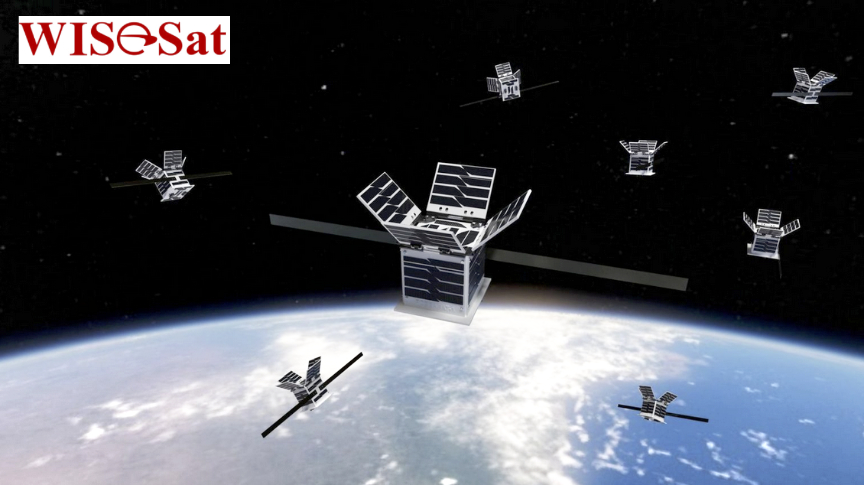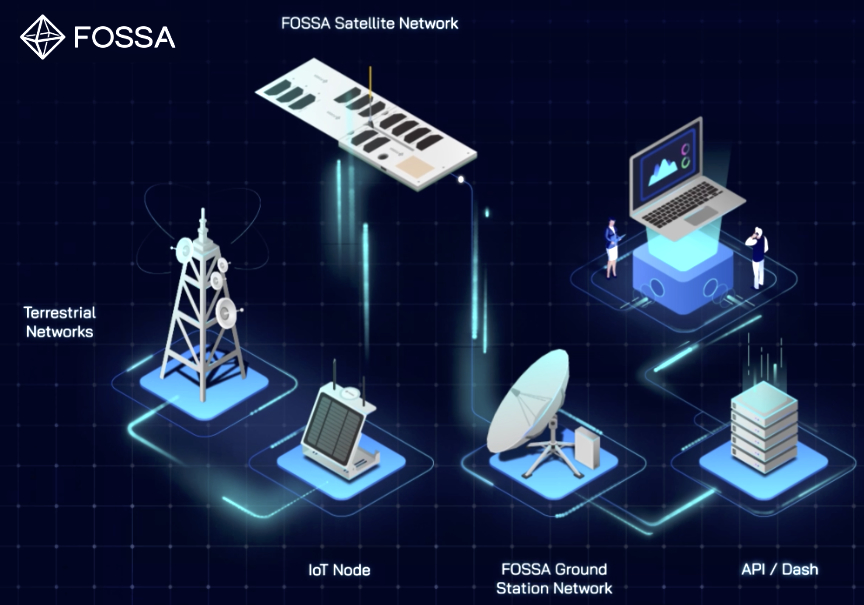
WISeKey International Holding Ltd. (“WISeKey”) (SIX: WIHN, NASDAQ: WKEY) has announced that its subsidiary, WISeSat.Space, is engaging in new developments that include the launch of a new generation of satellites, installation of a satellite antenna in Switzerland, development of a neutral satellite constellation from Europe, and collaboration with the Swiss Army.

In Q4 2024, WISeSat.Space is set to launch a new generation of satellites from California. This launch will mark a significant milestone in the Company’s efforts to expand its satellite constellation, further enhancing its ability to provide global IoT connectivity and environmental monitoring. The new generation of satellites are expected to offer improved performance and capabilities, supporting a wide range of applications from climate change monitoring to disaster management and smart agriculture.
In the same quarter, WISeSat.Space plans to install a satellite antenna in Switzerland. This installation will enable the monitoring and management of its satellite constellation, ensuring optimal performance and reliability of its IoT connectivity solutions. This development underscores WISeSat.Space’s commitment to maintaining robust and secure satellite operations.
The Company is also currently developing a constellation of 88 additional low-orbit satellites to optimize global coverage for IoT devices and an enhanced WISeSat satellite, planned for launch in Q3 2024. This upgraded satellite will incorporate SEALSQ Corp. (“SEALSQ”) (NASDAQ: LAES) semiconductor technology and WISeKey cryptographic keys, designed to boost performance in space and communication capabilities.

To date, the Company has successfully launched 17 low-orbit satellites in cooperation with FOSSA Systems, primarily aboard SpaceX Transporter Rideshare missions.

An important aspect of WISeSat.Space’s initiative is the development of a dependent and neutral satellite constellation from Europe. Having a European-based satellite constellation is crucial for several reasons. First, it ensures data sovereignty and reduces reliance on non-European entities for critical data and services. This autonomy is essential for maintaining control over data security and privacy.
Second, a neutral European constellation can facilitate international cooperation and trust, as it is perceived as unbiased and not tied to any geopolitical agendas.
Lastly, it promotes technological independence and innovation within Europe, driving economic growth and creating high-tech jobs. This European-centric approach aligns with broader strategic goals of enhancing the region’s competitiveness and resilience in the global space sector.
WISeSat.Space has also established a partnership with the Swiss Army, which underscores the strategic importance of its satellite initiatives. This collaboration involves leveraging WISeSat.Space’s secure IoT connectivity solutions to enhance the Swiss Army’s operational capabilities.

By integrating satellite-based communication systems, the Swiss Army can improve its situational awareness, logistics, and disaster response efforts. This partnership not only strengthens national security but also exemplifies the critical role of space technology in modern defense strategies.
WISeSat.Space employs picosatellites and low-power sensors to create a cost-effective and secure IoT connectivity solution. These smallsats are smaller and less expensive to launch than traditional satellites, making IoT connectivity more accessible. The constellation of picosatellites ensures global coverage, providing a reliable network for data collection and transmission.
The low-power sensors are designed to operate with minimal power consumption, making them ideal for environmental monitoring in remote and off-grid locations. WISeKey’s expertise in cybersecurity ensures that data transmitted through its network is secure and protected from unauthorized access.
WISeSat.Space’s play a significant role in disaster management by offering early warning systems for extreme weather events, such as hurricanes and floods. Enhanced forecasting capabilities assist in planning and mitigating the impacts of climate change on vulnerable communities and ecosystems. Additionally, high-quality data generated from the satellite constellation supports informed decision-making and policy formulation aimed at addressing climate change.
WISeSat.Space’s initiatives leverage space technology for global IoT connectivity and environmental monitoring, addressing key challenges in climate change and disaster management, thus contributing to a more resilient and sustainable future. By developing a neutral satellite constellation from Europe, launching a new generation of satellites from California, and collaborating with the Swiss Army, along with the installation of a satellite antenna in Switzerland by November, WISeSat.Space further strengthens its commitment to data security, international cooperation, and technological advancement.
WISeSat AG is pioneering a transformative approach to IoT connectivity and climate change monitoring through its innovative satellite constellation. By providing cost-effective, secure, and global IoT connectivity, WISeSat is enabling a wide range of applications that support environmental monitoring, disaster management, and sustainable practices. The integration of satellite data with advanced climate models holds great promise for enhancing our understanding of climate change and developing effective strategies to combat its impacts. As the world continues to grapple with the challenges of climate change, initiatives like WISeSat’s IoT satellite constellation are essential for creating a more resilient and sustainable future.
WISeKey International Holding Ltd (“WISeKey”, SIX: WIHN; Nasdaq: WKEY) is a global leader in cybersecurity, digital identity, and IoT solutions platform. It operates as a Swiss-based holding company through several operational subsidiaries, each dedicated to specific aspects of its technology portfolio. The subsidiaries include (i) SEALSQ Corp (Nasdaq: LAES), which focuses on semiconductors, PKI, and post-quantum technology products, (ii) WISeKey SA which specializes in RoT and PKI solutions for secure authentication and identification in IoT, Blockchain, and AI, (iii) WISeSat AG which focuses on space technology for secure satellite communication, specifically for IoT applications, and (iv) WISe.ART Corp which focuses on trusted blockchain NFTs and operates the WISe.ART marketplace for secure NFT transactions.
This post was originally published on the 3rd party mentioned in the title ofthis site




